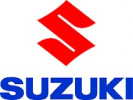
i
Tesla
Filter interviews by
Tesla Interview Questions and Answers
18 Interview questions
I resolved a disagreement with a coworker by facilitating open communication and focusing on shared goals.
Identified the disagreement during a project planning meeting.
Coworker and I had differing views on task prioritization.
I initiated a one-on-one discussion to understand their perspective.
We both presented our arguments backed by data and project goals.
Facilitated a brainstorming session with the team to gathe...
Consider factors such as cost, expertise, capacity, quality control, and strategic importance.
Evaluate cost implications of both options
Assess internal expertise and capacity for in-house production
Consider quality control measures for both options
Evaluate strategic importance of the product or service being considered
Analyze market conditions and supplier reliability
The excel sheet shows inventory levels, lead times, and supplier information for various products.
The excel sheet provides data on current inventory levels for different products.
It also includes lead times for each product, indicating how long it takes for an order to be fulfilled.
Supplier information is listed, showing which suppliers are responsible for providing each product.
Analyzing this data can help identi...
S-N curve is a graphical representation of the relationship between stress and fatigue life of a material.
S-N curve shows how the stress level affects the fatigue life of a material.
It helps in determining the endurance limit of a material.
The curve is typically plotted as stress amplitude (S) vs. number of cycles to failure (N).
GDT stands for Geometric Dimensioning and Tolerancing. Three common GDT call outs are concentricity, perpendicularity, and flatness.
Concentricity: Specifies that two or more features share a common center point.
Perpendicularity: Specifies that a surface or axis is perpendicular to a datum plane.
Flatness: Specifies that a surface must lie within a specified flatness tolerance zone.
Learn how to use SQL to rank data using the RANK() function for ordered results.
Use the RANK() function to assign a unique rank to each row within a partition of a result set.
Example: SELECT name, score, RANK() OVER (ORDER BY score DESC) AS rank FROM students;
RANK() will give the same rank to rows with identical values, leaving gaps in the ranking.
Example: If scores are 100, 100, 90, the ranks will be 1, 1, 3.
String manipulation involves modifying, analyzing, or processing strings to achieve desired outcomes.
Use built-in functions like length(), substring(), and indexOf() for basic operations.
Example: To reverse a string, iterate from the end to the start and build a new string.
Regular expressions can be used for complex pattern matching and replacements.
Example: Use regex to find all email addresses in a text.
String c...
Surface defects in battery cells can be measured using advanced imaging techniques like scanning electron microscopy (SEM) or atomic force microscopy (AFM).
Utilize scanning electron microscopy (SEM) to visualize surface defects at nanoscale level
Use atomic force microscopy (AFM) to measure surface roughness and defects with high resolution
Implement image processing software to analyze SEM or AFM images and quantif...
Oxidation reaction occurs on the surface of most metals when exposed to air.
Most metals react with oxygen in the air to form metal oxides
This process is known as oxidation
Examples include iron forming iron oxide (rust) and copper forming copper oxide
Magnesium reacts with water to produce magnesium hydroxide and hydrogen gas.
Magnesium reacts vigorously with water
It forms magnesium hydroxide and hydrogen gas
The reaction is exothermic
Tesla Interview Experiences
38 interviews found
(2 Questions)
- Q1. Ssdfsdfdddddddddddddddddddddddddddddddddddd
- Q2. Dfddddddddddddddddddddddddddddddddddddddddddddddddddddd
I applied via Approached by Company and was interviewed in Jul 2024. There were 2 interview rounds.
(2 Questions)
- Q1. What's your Strength and weakness?
- Ans.
Strength: Strong analytical skills. Weakness: Overcommitting at times.
Strength: Ability to analyze complex data and make informed decisions.
Strength: Strong problem-solving skills to address supply chain issues efficiently.
Weakness: Sometimes overcommitting to tasks and struggling to prioritize effectively.
Weakness: Working on improving time management to avoid burnout.
- Q2. Why do you work here at Tesla?
- Ans.
I am passionate about sustainable transportation and innovation.
I am inspired by Tesla's mission to accelerate the world's transition to sustainable energy.
I am excited to be part of a company that is at the forefront of innovation in the automotive industry.
I believe in the potential of electric vehicles to revolutionize transportation and reduce carbon emissions.
(2 Questions)
- Q1. What insights can you draw from this excel sheet?
- Ans.
The excel sheet shows inventory levels, lead times, and supplier information for various products.
The excel sheet provides data on current inventory levels for different products.
It also includes lead times for each product, indicating how long it takes for an order to be fulfilled.
Supplier information is listed, showing which suppliers are responsible for providing each product.
Analyzing this data can help identify po...
- Q2. When making decision between Make vs. Buy, what would you consider?
- Ans.
Consider factors such as cost, expertise, capacity, quality control, and strategic importance.
Evaluate cost implications of both options
Assess internal expertise and capacity for in-house production
Consider quality control measures for both options
Evaluate strategic importance of the product or service being considered
Analyze market conditions and supplier reliability
Skills evaluated in this interview
I appeared for an interview in Mar 2025, where I was asked the following questions.
- Q1. Basic Mechanical Principles
- Q2. Problem solving experience
I applied via Walk-in and was interviewed in May 2024. There was 1 interview round.
(2 Questions)
- Q1. Questions about bolts
- Q2. Questions about basic heat transfer
Technical Project Manager and Scrum Master Interview Questions & Answers
posted on 19 Jan 2025
(1 Question)
- Q1. Tell me about a time when you had disagreement with a coworker and how you resolved it.
- Ans.
I resolved a disagreement with a coworker by facilitating open communication and focusing on shared goals.
Identified the disagreement during a project planning meeting.
Coworker and I had differing views on task prioritization.
I initiated a one-on-one discussion to understand their perspective.
We both presented our arguments backed by data and project goals.
Facilitated a brainstorming session with the team to gather inp...
(3 Questions)
- Q1. Basic stress/strain curve
- Q2. Why you want to join Tesla?
- Q3. What is S-N curve
- Ans.
S-N curve is a graphical representation of the relationship between stress and fatigue life of a material.
S-N curve shows how the stress level affects the fatigue life of a material.
It helps in determining the endurance limit of a material.
The curve is typically plotted as stress amplitude (S) vs. number of cycles to failure (N).
Arithmetic quant data analysis moon star coding
I applied via Job Portal and was interviewed in Jan 2024. There were 3 interview rounds.
(1 Question)
- Q1. Inertia concepts, heat transfer in a PCBA, FBD
Basic mechanical fundamentals, beams, material science, heat transfer, hydraulics
(1 Question)
- Q1. Not done yet but expect to present a project in front of a board
Explain the "Hello, World!" program in Java.
(1 Question)
- Q1. Hello python code
(1 Question)
- Q1. What are the responsibilities and functions of a purchase manager?
Interview Preparation Tips
Top trending discussions






Tesla Interview FAQs
Some of the top questions asked at the Tesla interview -
The duration of Tesla interview process can vary, but typically it takes about less than 2 weeks to complete.
Tell us how to improve this page.
Tesla Interviews By Designations
- Tesla Mechanical Engg. Design Interview Questions
- Tesla Supply Chain Manager Interview Questions
- Tesla Intern Interview Questions
- Tesla Mechanical Engineer Interview Questions
- Tesla Project Manager Interview Questions
- Tesla Engineer Interview Questions
- Tesla Software Engineer Interview Questions
- Tesla Software Developer Interview Questions
- Show more
Interview Questions for Popular Designations
Overall Interview Experience Rating
based on 36 interview experiences
Difficulty level
Duration
Interview Questions from Similar Companies
|
Software Developer
12
salaries
| ₹16.8 L/yr - ₹56.4 L/yr |
|
Software Engineer
7
salaries
| ₹14.4 L/yr - ₹28 L/yr |
|
Manager
7
salaries
| ₹7.5 L/yr - ₹33.2 L/yr |
|
Senior Software Engineer
5
salaries
| ₹20 L/yr - ₹32 L/yr |
|
Technical Manager
5
salaries
| ₹8 L/yr - ₹15 L/yr |

Wipro

TCS

Amazon

- Home >
- Interviews >
- Tesla Interview Questions
















